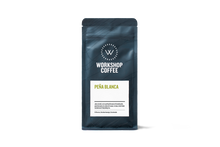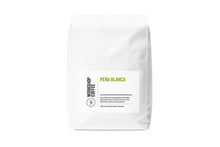
Adapting and evolving his farm since it was first planted in 1991, Ranferi Morales has radically renovated Finca Peña Blanca in the last five years. New varieties have been planted and they are undertaking a more holistic biological approach, utilising shade trees, eschewing herbicides and applying organic fertilisers.
The Farmer
For Ranferi, producing specialty coffee involves a lot of hard work and sacrifice. There are many protocols that need to be met to produce a high quality product, but he has also taken on a broader and more holistic approach to ensure there is a greater appeal for buyers to take his coffee, as he is working with a greater respect for the environment.
Despite the leaps and bounds taken in the specialty coffee market in terms of marketing and quality control, Ranferi still sees the industry as one that is in crisis. Whilst we didn’t get to meet Ranferi first hand on our trip to Guatemala earlier this year, his worries and concerns were echoed by every other farmer we visited. Migration to the US is depleting the pool of workers to help during the harvest, but also some of the farm owners and their families are leaving too, abandoning their farms to pursue more lucrative work abroad.
The Farm
Initially planted in 1991, Finca Peña Blanca is now predominantly planted with Caturra across 18 hectares. The limestone rich soil is enriched with organic fertiliser, and the coffee trees themselves are shaded by Chalum, Gravilea and Cypress trees.
Due to the high altitude of 1,700 to 1,750 metres, the nights are very cool whilst the days hot, which can contribute to seeds with more density and concentrated, complex flavours. In order to protect and respect the native fauna and flora on the farm they are eschewing the use of chemical herbicides.
Their Approach
Once their Caturra coffee is harvested it undergoes processing typical in the region. Once depulped the coffee is dry fermented before being fully washed to remove any broken down mucilage. An extra step to ensure a cleaner and more stable cup, Ranferi then opts to soak the washed coffee for a further 24 hours in clean water, before putting it out to dry on patios for 10 days.
The result is a very soft yet full cup, with hints of bramble fruit and berry notes.




